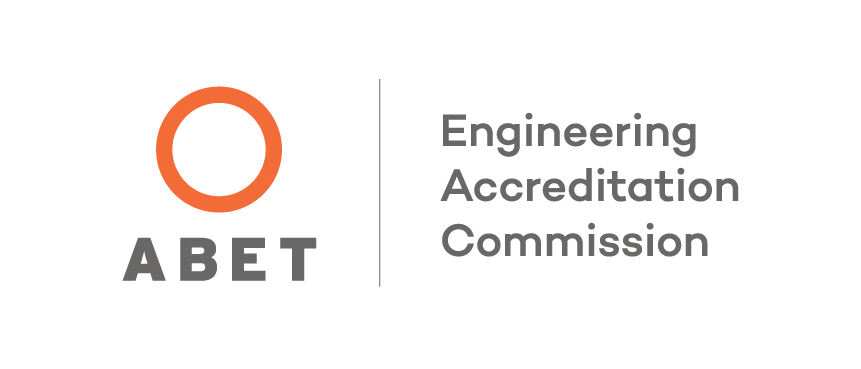
This program is accredited by the Engineering Accreditation Commission of ABET, https://www.abet.org, under the General Criteria and the Electrical, Computer, Communications, Telecommunication(s) and Similarly Named
Engineering Programs Program Criteria.
PROGRAM EDUCATIONAL OBJECTIVES
The Electrical Engineering Program has two options: Electrical
and Electronics Option and Bioelectrical Engineering
Option. Our program integrates the Liberal Studies Core and emphasizes holistic student development in accordance with the mission of Gannon University. The program educational objectives, which leads to a Bachelor of Science degree in Electrical
Engineering, are to produce graduates who:
- Demonstrate professional ethics and personal values in daily and professional life that exercise informed literary and aesthetic judgments by leveraging diverse cultures and societies
- Demonstrate teamwork and leadership qualities and/or attainment of leadership roles in a global work environment
- Demonstrate technical competency in applying comprehensive engineering knowledge for their successful career in rapidly changing professional environment
- Demonstrate passion for life-long learning through engaging in the rapidly changing and emerging areas of technology, and/or continued professional development
To achieve these objectives, the ECE Program maintains a modern curriculum, state-of-the-art laboratories and teaching techniques, well-qualified faculty, and a strong advising system.
2023-24 UNDERGRADUATE CATALOG
STUDENT LEARNING OUTCOMES
- An ability to identify, formulate, and solve complex engineering problems by applying principles of engineering, science, and mathematics
- An ability to apply engineering design to produce solutions that meet specified needs with consideration of public health, safety, and welfare, as well as global, cultural, social, environmental, and economic factors
- An ability to communicate effectively with a range of audiences
- An ability to recognize ethical and professional responsibilities in engineering situations and make informed judgments, which must consider the impact of engineering solutions in global, economic, environmental, and societal contexts
- An ability to function effectively on a team whose members together provide leadership, create a collaborative and inclusive environment, establish goals, plan tasks, and meet objectives
- An ability to develop and conduct appropriate experimentation, analyze and interpret data, and use engineering judgment to draw conclusions
- An ability to acquire and apply new knowledge as needed, using appropriate learning strategies
Electrical Engineering Fall Enrollment
| |
18-19 |
19-21 |
20-21 |
21-22 |
22-23 |
23-24 |
| Electrical Engineering |
42 |
40 |
32 |
31 |
22 |
24 |
| 5yr coop Electrical Engineering |
0 |
1 |
1 |
0 |
1 |
1 |
Electrical Engineering Completions (July 1st to Jun 30th)
| |
18-19 |
19-21 |
20-21 |
21-22 |
22-23 |
23-24 |
| Electrical Engineering |
17 |
7 |
9 |
10 |
6 |
TBD |
| 5yr coop Electrical Engineering |
0 |
0 |
0 |
0 |
0 |
TBD |